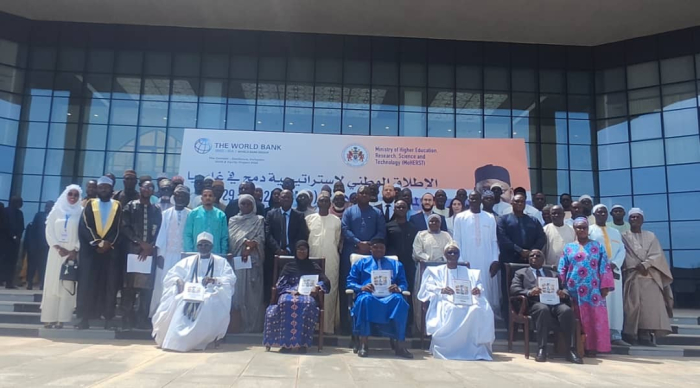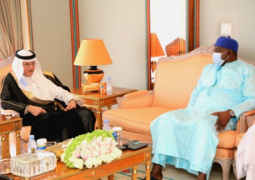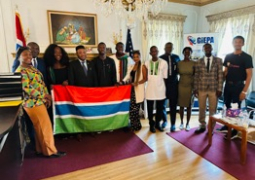
The event was held on 10 June 2025 at the Sir Dawda Kairaba Jawara International Conference Centre in Bijilo.
The GMIS aims to mainstream Madrassah education into the national development agenda to ensure that graduates are empowered with the skills, qualifications, and opportunities they need to succeed.
Funded by the World Bank Group, the Strategy outlines key findings and policy recommendations aimed at integrating both Madrassah and Majalis education into Tertiary and Higher Education with a strong focus on Technical and Vocational Education and Training (TVET) alongside Science, Technology, Engineering and Mathematics (STEM) fields.
In his launching speech, President Adama Barrow described the event a landmark which synchronises with his government’s strong determination to provide inclusive and equitable education for every Gambian, regardless of any form of distinction.
He said that for generations, the parallel Madrassah and Majalis education systems have played an integral role in influencing and shaping the moral, spiritual, and academic fabric of the country’s society.
He revealed that these institutions will be fully integrated into the country’s national education architecture, adding that it is not only a policy milestone but also a powerful statement of their collective commitment to equity, inclusion, and transformation of The Gambia’s education system.
“Every Gambian child deserves an equal opportunity to pursue tertiary and higher education, gain valuable skills, and contribute meaningfully to the nation's socio-economic growth and development,” he stated.
Despite their moral grounding, discipline, and academic excellence, he said “our Madrassah graduates have, for far too long, faced systemic barriers in transitioning to post-secondary education. Mostly, these barriers relate to limited English language proficiency, lack of access to specialised skills development opportunities, curriculum issues, and inaccessible pathways to tertiary and higher education.”
Such barriers he said have inhibited the potential of a significant portion of the youth, many of whom come from economically and socially marginalised communities, while urging for the breakdown of such discriminatory barriers.
He advanced that the GMIS Strategy, developed through broad consultations and rigorous analysis, seeks to change the narrative which offers a transformative roadmap with strategic pillars on resource mobilisation and sustainability, governance and advocacy, information and communication, infrastructure development, project management and capacity development.
Barrow revealed that The Gambia Madrassah Integration Strategy is aligned with both national and international frameworks, such as the National Development Plan (NDP 2023–2027), the Sustainable Development Goal on inclusive and equitable quality education, The African Union 2063 Agenda, and UNESCO’s Global Education Strategy.
This approach he said is initiated to build a harmonised, culturally responsive, and progressive education system, noting that with this strategy, they will implement bridging programmes for language and STEM literacy.
This, he said will provide TVET and apprenticeship tracks for Madrassah graduates, reform the curriculum and teaching approaches, strengthen institutional partnerships, and invest in the dignity and potential of every student.





